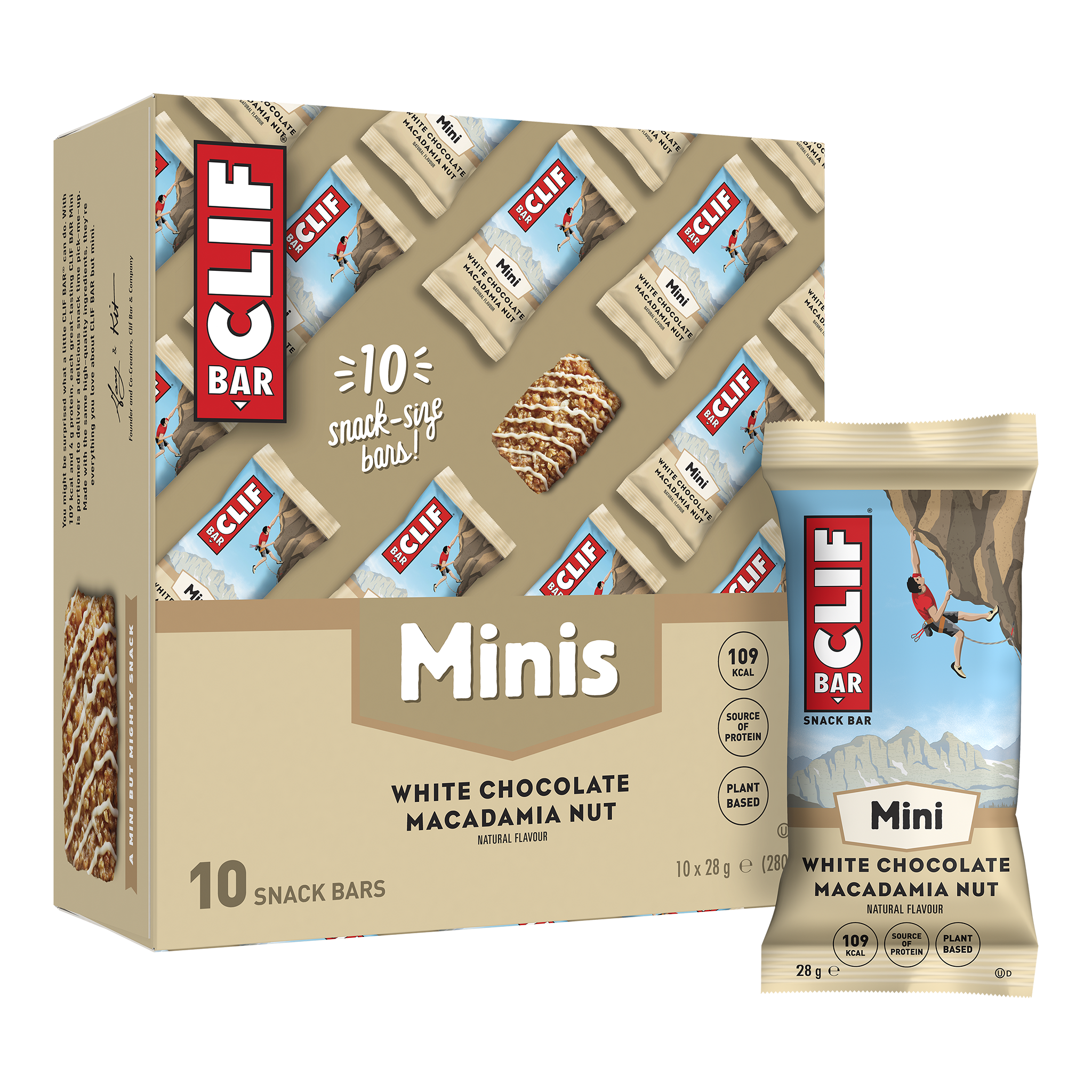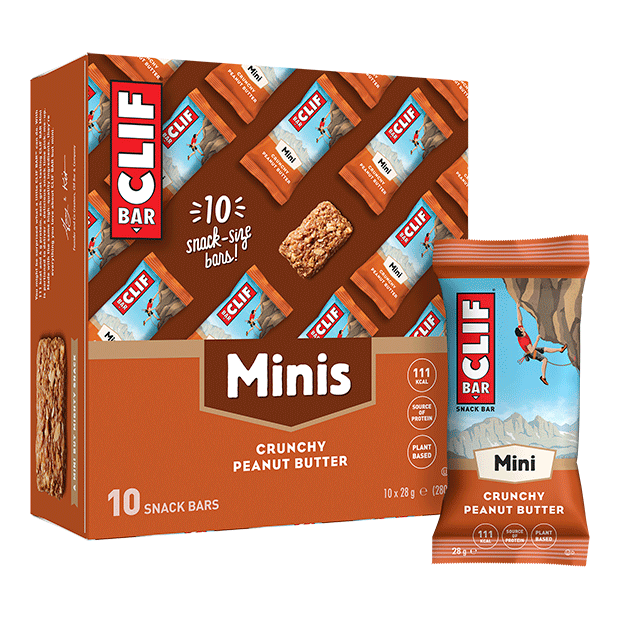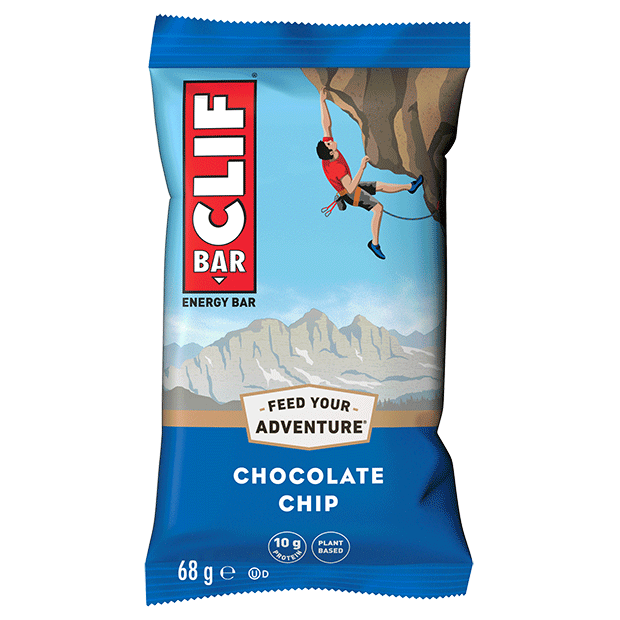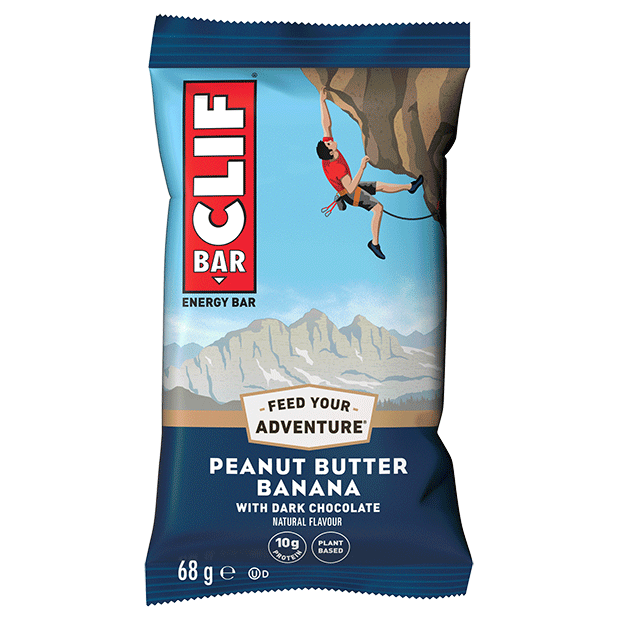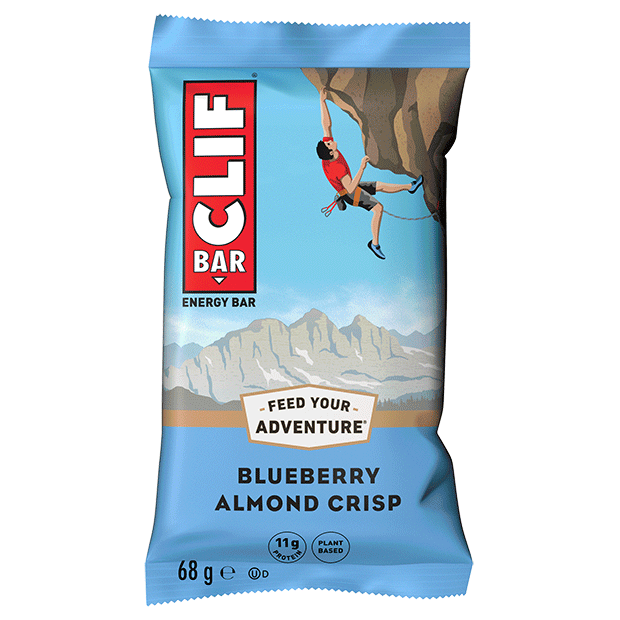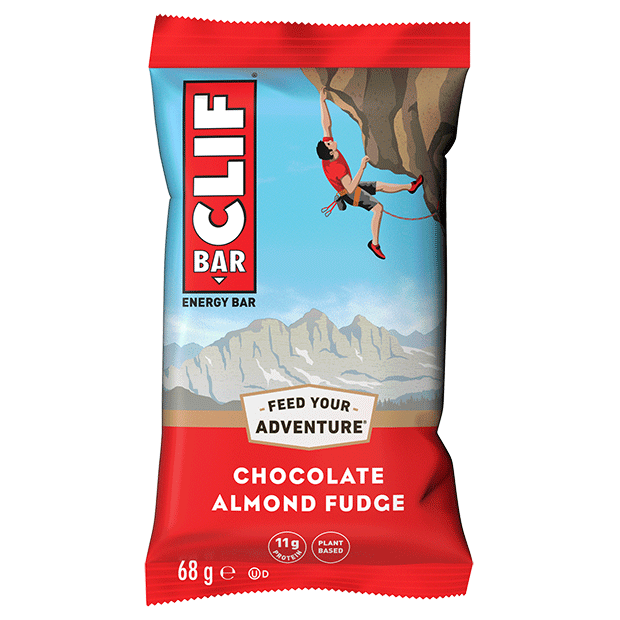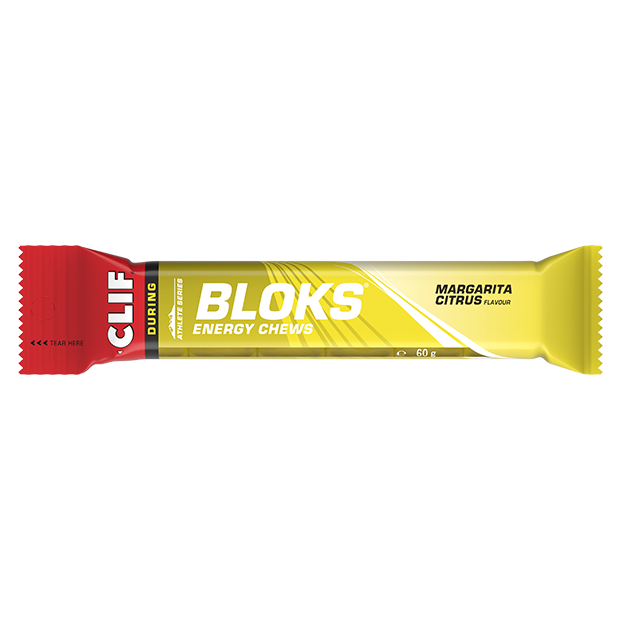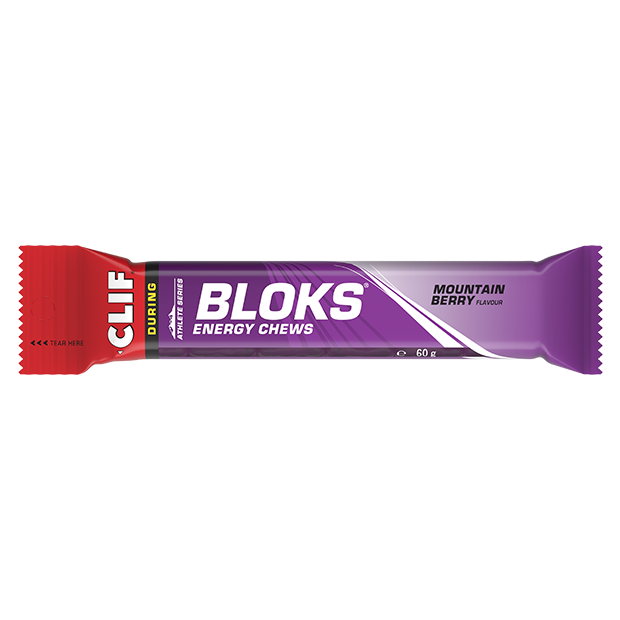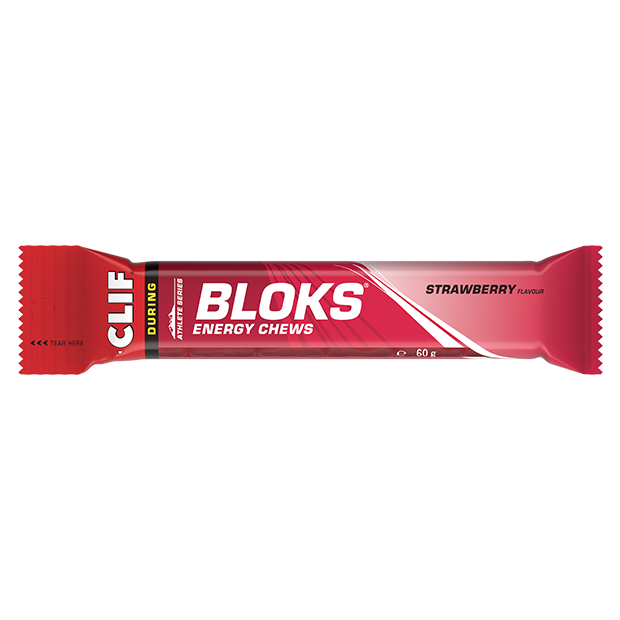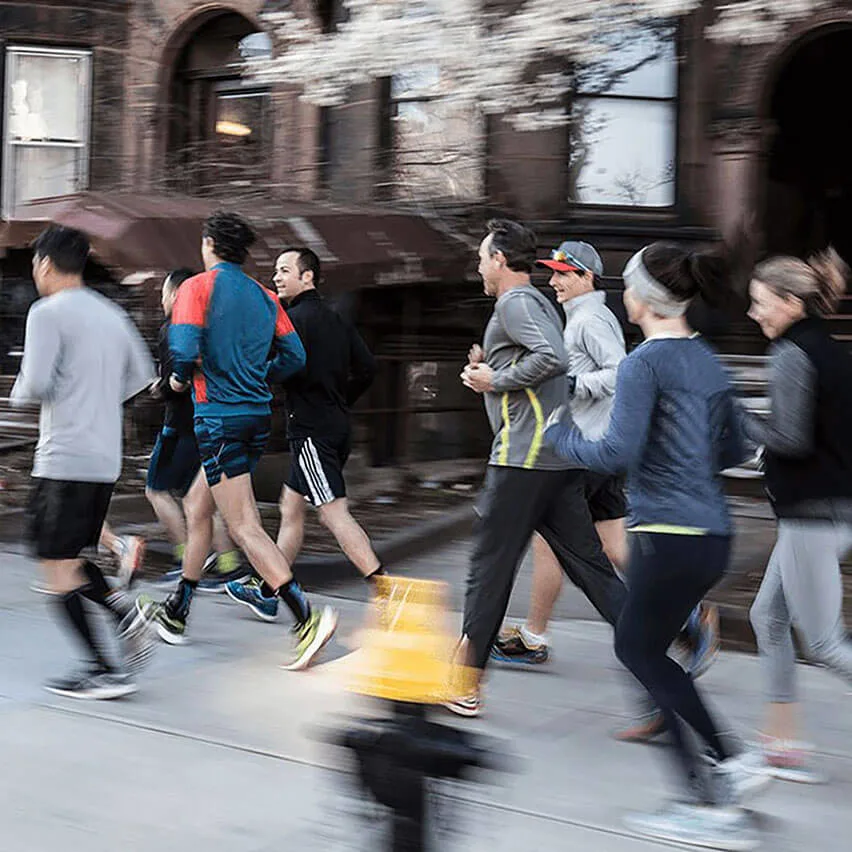The ideas and suggestions written below are provided for general educational purposes only and should not be construed as medical advice or care. The contents of this article are not intended to make health or nutrition claims about our products. Always seek the advice of a doctor or other qualified health professional before beginning any physical fitness or health- and nutrition-related activity.
Whether you’ve signed up for your first marathon or are working towards a personal record, getting adequate nutrition while training is crucial to your success. The foods you eat sustain energy levels during your run and provide the essential nutrients for recovery after the stress of a race. Fueling properly can also decrease mental fatigue, prevent dehydration, reduce injury risk, and ultimately improve performance. Athletes and active individuals alike recognise that nutrition matters to performance, but they often fall victim to overly prescriptive or restrictive diets rather than focusing on fuel that truly supports their activity.
So, when should you eat? What should you be eating? And why does it all matter to your training? This article answers the most commonly asked questions around fueling for a marathon and offers tips for optimising your training and performance.
Nutrient Considerations for Marathon Training and Racing
When it comes to sports nutrition, it’s important to understand the why behind specific recommendations. Ultimately, the depletion of glycogen (stored muscle carbohydrates) and dehydration are limiting factors in endurance exercise, which is when you are looking to run long and hard.1, 2
When running long distances, both carbohydrates and fat are used to fuel muscle cells. As exercise intensity increases, muscles use more carbohydrates. Because of this, during long training sessions or races muscles will ultimately deplete their energy (glycogen) stores.1 Eating adequate carbohydrates leading up to the race (to optimise glycogen stores) and ingesting carbohydrates during the race (for immediate energy) are two ways to ensure a sustained pace to help you make it to the finish line.3
Fuel with Carbohydrate
The recommended amount of carbohydrates to consume leading up to the race varies from person to person based on not only an individual’s weight but also factors outside of training, such as lifestyle activities, fitness level, body composition, and environmental conditions.2 In general, recommendations for marathon training range from 6–10g of carbohydrates per kilogram (g/kg) of body weight per day—a target that not all athletes reach due to lack of knowledge or inadequate meal preparation.4
Stay Hydrated
In addition to carbohydrates, it’s important to consider fluid requirements to remain well hydrated along the course. When the body loses fluid through sweat and lung expiration, blood volume drops, putting more pressure on the heart to effectively circulate nutrients and oxygen to the working muscles. As fluid is lost, important electrolytes like sodium are also lost along with it. Sweat rates can vary from 0.5–2.0L per hour, so athletes should consider working with a registered dietitian to develop a personalised hydration plan when training for their marathon.5
What to Eat and When
A week before a marathon, athletes commonly taper activity as part of their training schedule. Due to this decreased amount of activity, energy needs will not be as high as other weeks in the overall training program. Still, it is crucial that adequate carbohydrates be ingested to keep glycogen stores high as muscles prepare for race day. Consume balanced meals that reflect your normal eating patterns along with adequate snacks to prevent hunger. Meals and snacks containing carbohydrates should continue to include protein to support muscle strength.
Two to three days before the race is when it is most important to eat only familiar foods and consider carbohydrate loading. To avoid gastrointestinal reactions, trying new foods as you approach race day is not recommended. Carbohydrate loading, or maximising muscle glycogen carbohydrate storage, can enhance marathon performance by allowing you to run at your optimal pace for a longer period before fatigue sets in. Consume 10–12g/kg body weight of carbohydrates for the 48 hours leading up to the race.2,3,6 Since this will increase energy intake from carbohydrates, intake from fats and protein should decrease during this time. Glycogen loading also allows for enhanced hydration as each gram of glycogen holds on to 3mL of water.7
The day before the race should be focused on rest, continued adequate carbohydrate intake, and hydration. Again, no unfamiliar foods should be introduced at this time to prevent any chance of gastrointestinal upset. Adequate fluid intake should be top of mind. Sip water all day to prevent thirst and monitor urine colour to maintain a “straw-like” color.5
The night before the race should include a meal rich in carbohydrates with moderate protein and fat. Avoid alcohol to maintain adequate hydration, mental clarity, and motor skill function on race day. If you’re concerned about dehydration on race day, make your own electrolyte drink the night before your race by combining water and fruit juice (like pineapple or grape) at a two-to-one ratio, including a tablespoon of fresh lemon or lime juice and a pinch of salt. If you’re still hungry after dinner, a carbohydrate-rich snack is appropriate before a good night of rest.
On the morning of the marathon, the main goal is to top off your glycogen stores as this has been shown to postpone fatigue by approximately 20% in endurance events lasting more than 90 minutes.6 When carbohydrates are ingested in the few hours before endurance exercise, glycogen stores and time to exhaustion are increased, allowing for maximum performance.7 The meal you eat before your race should be a familiar and carbohydrate-rich one and include a little bit of fibre, fat, and protein to avoid a spike and crash in blood sugar before the race starts. In addition to a balanced carbohydrate-rich breakfast, some athletes benefit from an added dose of quickly absorbed carbohydrates, like CLIF BLOKS Energy* Chews, 5–15 minutes before the race start during their warmup.1
*Carbohydrate solutions contribute to the improvement of physical performance during high-intensity and long-lasting physical exercise in trained adults.
Another goal to consider before you reach the starting line is to be in euhydration, or fluid balance. Consume 5–7mL/kg body weight roughly four hours before the race begins to allow your body to reach the correct fluid balance.5 If you regularly consume caffeinated coffee or tea, do so. Do not add sources of caffeine on race day if it’s not part of your usual routine.
Food Ideas When Training
Whole food meals are an excellent way to get adequate energy and nutrients while training in the weeks leading up to race day. All meals should provide a balance of carbohydrates, proteins, and fats, with fruits or vegetables included.
Breakfast may include porridge prepared with milk or plant-based milk and topped with fruit, nuts, and/or seeds or eggs paired with wholemeal toast topped with avocado, plus fruit and a glass of fruit juice. These are both great options hours before or after a morning run. At lunch and dinner, pasta, rice, potatoes, and wholemeal bread or rolls can be paired with your favourite vegetables, lean proteins, and healthy fats.
When it comes to snacks, fruit is always a great choice to pair with crackers, hummus, and nuts. Toast with peanut butter and banana, yoghurt with muesli, and balanced smoothies with berries, vegetables like spinach, and protein are great options, too.
While preparing whole foods is ideal, packaged foods have a time and place when nutrition on the go is a priority.
What to Eat & When on Race Day: *
*Note timing and amount eaten may vary per person; guidelines are meant as general recommendations
Try different foods before your marathon. When you have found your favourite combo, stick with it. Don’t try anything new on race day. Below are some ideas to consider for before, during and after your race.
Goals | Timing | What to Eat (Ideas) | |
Before Runs | Provide energy to fuel your workout and avoid fatigue. Help avoid glycogen depletion and maintain healthy blood sugar levels. | Meal 3–4 hours before running. Balanced snack 1–2 hours before running that is high in carbohydrate and moderate in protein, fat and fibre. Boost of energy 15 mins before running that is high in carbohydrate. | Snack: Small cup of muesli w/ fruit. Smoothie w/ yoghurt + berries. Energy Boost: |
During Runs | Replenish sweat (fluid and electrolyte) loss. Provide an easily absorbable source of energy. | Water for all runs longer than 30 mins. Extra electrolytes and energy (30–60g carbohydrates/hour) for exercise lasting longer than 90 mins. | Hydration: Extra Energy: |
After Runs | Aid recovery and avoid additional muscle breakdown. Replenish glycogen (energy stores). Ensure adequate hydration. | Snack ~30 minutes after running mainly comprising carbohydrates and complete protein. | Snack: ½ an apple with a handful of almonds and a glass of milk. |
*Phosphorus contributes to normal energy-yielding metabolism.
Extra Tips on What to Eat
While what you eat is important to fuel your race, what not to eat is equally important to discuss! Because there is a very high prevalence of gastrointestinal complaints during endurance exercise, it’s crucial to avoid any foods that could contribute to those problems1 These include fried or very high-fat foods, spicy foods, foods very high in fibre (especially for those who don’t typically consume a high-fibre diet), and any other foods known to have irritated you in the past.
After a successful marathon, you won’t want to forget to eat adequately to recover your stressed muscles. A snack like regular or chocolate milk is helpful to quickly replenish fluids, electrolytes, carbohydrates and protein immediately after a race. If you’re able to bring a protein shake with you and keep it cold, you can make one ahead of time by simply blending dairy or non-dairy milk with a scoop of protein powder and ½ a banana for natural sweetness. Keep in mind that a balanced meal including adequate high-quality protein and carbohydrates is essential within several hours after your race to fully refuel.4 Continued intake of balanced meals and snacks in the days after your marathon will also aid in recovery.
References
- Jeukendrup, A. E. Nutrition for endurance sports: marathon, triathlon, and road cycling. J Sports Sci 29 Suppl 1: S91-99, 2011.
- Jeukendrup, A. (2014). A step towards personalized sports nutrition: carbohydrate intake during exercise. Sports Med 44 Suppl 1: 25-33, 2014.
- Hackney AC. Human Performance Enhancement in Sports and Exercise: Nutritional Factors “Carbohydrate Loading”. Revista Universitaria De La Educación Física Y El Deporte, n. 2, S. 28-31. 2015.
- Thomas D. Erdman K, Burke L. Position of the Academy of Nutrition and Dietetics, Dietitians of Canada, and the American College of Sports Medicine: Nutrition and Athletic Performance. J Acad Nutr Diet. 2016; 116:501-528.
- Sawka M. et al. American College of Sports Medicine position stand. Exercise and fluid replacement. Med Sci Sports Exerc, 2007. 39(2); 377-390.
- Burke L. Nutrition Strategies for the Marathon: Fuel for Training and Racing. Sports Med, 2007. 37(4-5); 344-347
- Beck K. et al. Role of Nutrition in Performance Enhancement and Post-exercise Recovery. J Sports Med, 2015. 6: 259-267l
